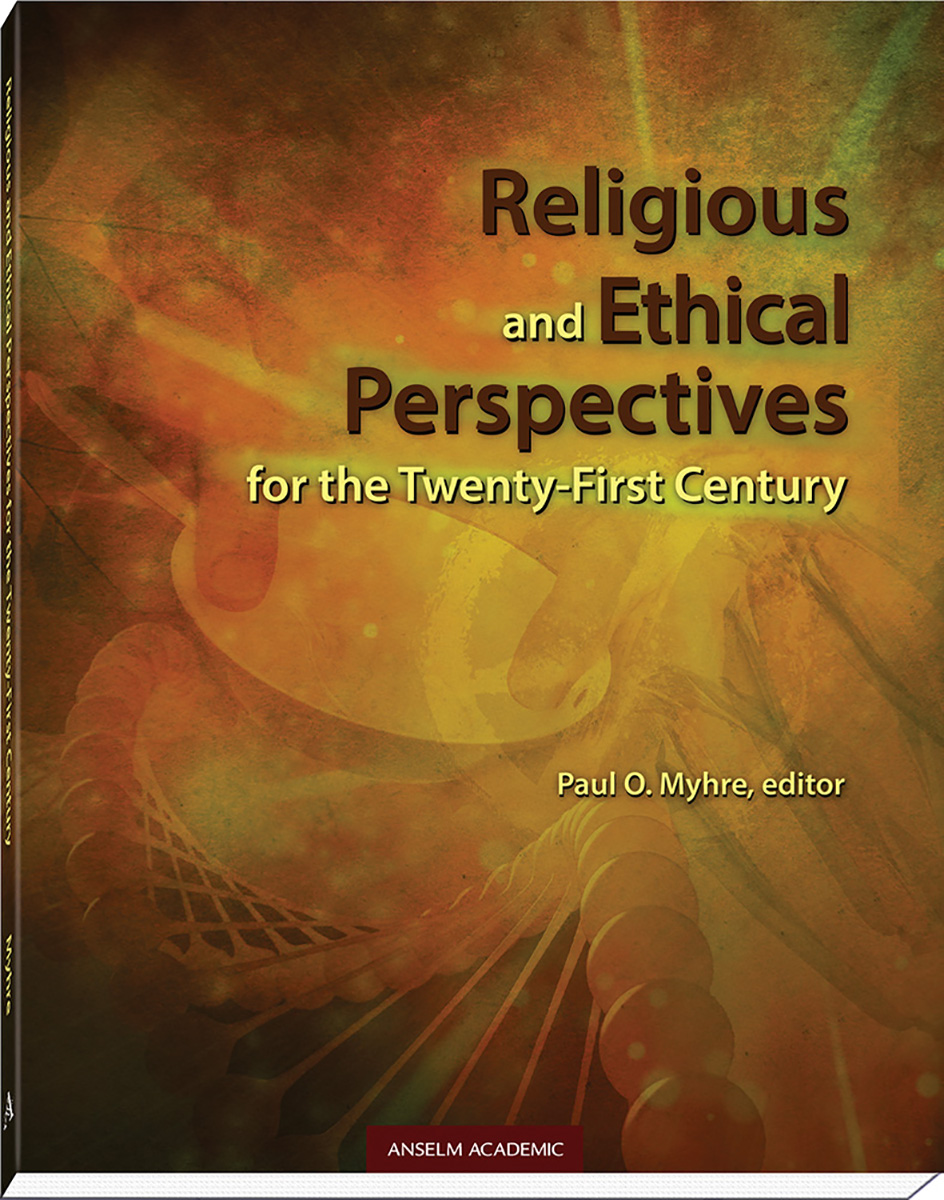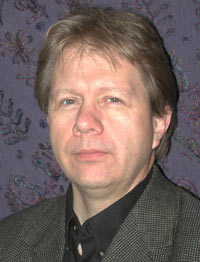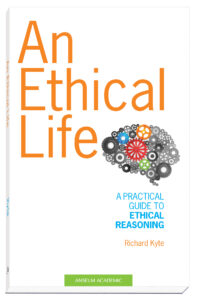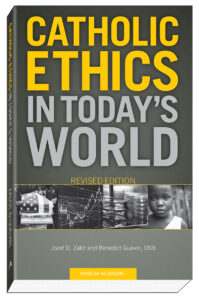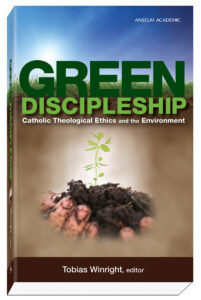Religious and Ethical Perspectives for the Twenty-First Century
About This Book
Overview
Religious and Ethical Perspectives for the Twenty-First Century explores complex questions associated with health care, food, technology, peacemaking, and other twenty-first-century ethical issues. It provokes critical thought and a renewed awareness of the need to discover unexamined assumptions that can affect decision making, while holding in tension the fact that there are no perfect answers to these issues. The essays offer substance for study and stimulate religious and ethical analysis.
A valuable resource, this text lays a foundation for inquiry and enables students to bring new insights to the many religious and ethical choices they face.
Details
| Weight | 1.1 lbs |
|---|---|
| Dimensions | 7.25 × 1.5 × 9.125 in |
| Format | Softcover |
| Print ISBN | 978-1-59982-131-3 |
| Pages | 302 |
| Item # | 7045 |
|---|
Customer Reviews
“Paul Myhre has assembled an impressive collection of essays from scholars working at the intersection of social justice advocacy and theological inquiry. Students will appreciate the accessibility and contemporary relevance of each chapter, while professors will welcome the breadth of topics discussed and the clarity of their organization. Scholars of religion will value the critical insights offered on subjects as diverse as the communal impact of HIV/AIDS, the ethics of food production and consumption, religion and violence, and the alarming extent to which the media and social networks govern our daily lives. This volume is a timely and important exploration of the technological, environmental, and social issues that have come to define the early twenty-first century. I recommend it highly for use in the college and seminary classroom.”
Hastings College
“The essays in this edited work shed light on the undeniable intersection between religion and ethics in society by challenging readers to understand how we should move forward for the betterment of human existence. Religious ethical values can make or break a political candidate’s chance for election or reelection; religious ethical values can influence and mobilize large and small humanitarian relief organizations to intervene at a local and/or global scale; religious ethical values can lead to laws that recognize the rights of alienated minorities; religious ethical values can expose the crimes of the capitalist system; religious ethical values can create awareness for a more conscientious use of natural resources and the preservation of our world. These essays offer an investigation on these and other issues and a place for us to reflect critically on where we are today.”
“This important book provides an American snapshot of the dramatic effects the twenty-first-century context is having on ethical inquiry. With a focus on practical ethics and religion, the authors wade into age-old questions, including war, peacekeeping, politics, and healthcare, and grapple with how these interface with emergent issues, including social networking, technology, the 2008 Crash, and planetary and food ethics. Constructively, the book is not designed to arrive at answers but to expose morally relevant assumptions and questions. Using an engaging conversational tone, these US authors explore the global consequences of our active or passive choices. This thoughtfully crafted selection of essays is meant to disrupt and unsettle the reader. Ultimately, the reader is challenged and helped to imagine new possibilities that do not always fit comfortably with established paradigms. In the classroom, this book will contribute well to the development of students’ critical thinking skills and knowledge of some of the most pressing contemporary issues.”
Queens School of Religion at Queens University (Kingston, Ontario)
Table of Contents
Introduction
Paul O. Myhre
1. Ethics in the Twenty-First Century: Spheres of Relationship
Maureen O’Connell
2. Media Ethics and Religion
Mary E. Hess
3. You Are What You Tweet: Religious Ethics in the Age of Gadgets
James F. Caccamo
4. Living and Dying: Ethical Challenges in Health Care and Bioethics
Aana Marie Vigen
5. Religion, Ethics, and AIDS
Kimberly Vrudny
6. War, Revolution, and Peace
Ellen Ott Marshall
7. War in the Twenty-First Century
Shelly Rambo
8. Religion and Politics
Hjamil A. Martínez-Vázquez
9. Food Ethics: Consuming with Compassion
Julie Hanlon Rubio
10. Developing a Planetary Ethic: Religion and Ethics and the Environment
Whitney A. Bauman
11. Poverty and Prosperity after the Crash of 2008: Insights from Liberation Theology on Zero-Sum Capitalism at the Twilight of American Exceptionalism
Jorge A. Aquino
About the Authors
Index
Professional Reviews
“Myhre has produced a strong volume of essays for undergraduates covering contemporary issues in ethics. With a conversational style, the authors introduce students to key thinkers and theories in the current use of technology, medical ethics, war and peace, food ethics, political ethics, environmental ethics, and economic ethics. The format reinforces the style: a preface announces each chapter’s goals, and questions for reflection and discussion are inserted in the middle and at the end of each chapter. The questions, however, mainly ask students to reflect on their own experiences, thus possibly drawing them away from wrestling with and comprehending the text.
“The collection succeeds where M. has found teachers/scholars who know how to communicate complex ideas to students through an engaging use of examples. Highlights include Maureen O’Connell’s opening essay, which is a clear and cogent introduction to religious ethics; James Caccamo’s chapter on the ethics of digital communication technologies; Julie Hanlon Rubio’s balanced, but challenging, piece on the ethics of food consumption; and the chapters on access to health care and AIDS by Aana Marie Vigen and Kimberly Vrundy, respectively.
“The collection is ideal for a course covering contemporary ethical issues, or, as a late-semester resource for a course in foundational religious ethics. As with many volumes designed to take up a variety of applied topics in ethics, the chapters here are often more descriptive than theological or prescriptive, as they assume students are conversant with concepts in religious ethics. As a result, students will benefit most from the text after studying the various schools of ethical method.
“While the book’s title indicates that this is a text in religious and ethical perspectives, the preponderance of attention is given to Christian thinkers and concepts. However, some chapters contain sufficient treatment of non-Christian thought to engage students in the rudiments of interreligious ethics. Faculty who seek an extended treatment of how various religious traditions address contemporary ethical issues will need to look elsewhere.”
St. Anselm College, NH
